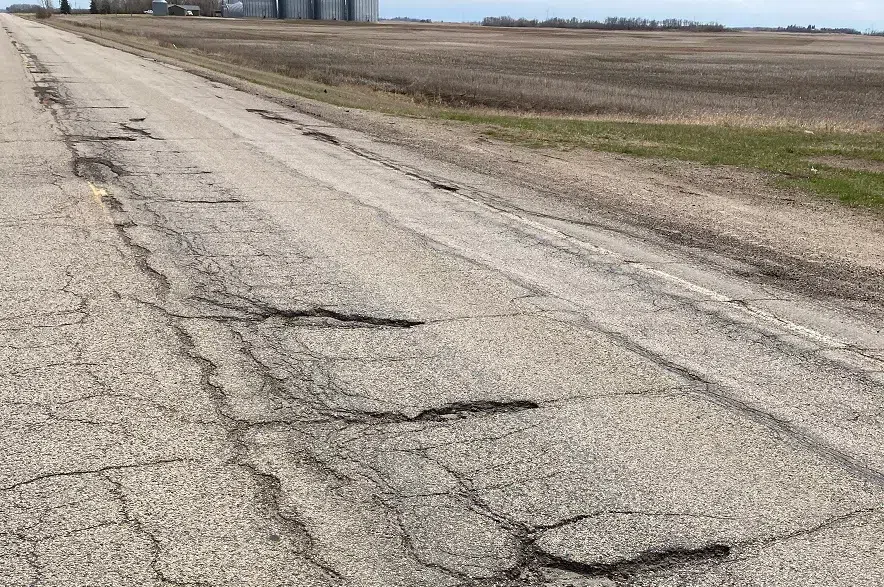The Saskatchewan Association of Rural Municipalities (SARM) put infrastructure at the top of its list of priorities in this month’s provincial election.
The organization, which represents rural municipalities across the province, called for increased provincial funding for roads and bridges in rural parts of the province.
“These pieces of infrastructure are not only the lifeline for thousands of municipal residents who travel them daily; they also help drive our rural economy by supporting oil and gas, agriculture, mining, and other natural resource sectors,” the association explained in a statement.
“Without further aid, the roads and bridges in rural Saskatchewan will continue to deteriorate with significant economic and social consequences.”
According to SARM, RMs in Saskatchewan are responsible for 164,000 kilometres of roads along with 1,280 bridges, 60 per cent of which are at or beyond their expected service lifespan.
The cost of bridge building increased by 36 per cent per square foot between 2010 and 2020, the association noted, and jumped by another 25 per cent between 2020 and 2022. Road construction is also becoming more expensive, SARM said.
While the province’s Rural Integrated Roads for Growth program has increased the funding available for infrastructure in rural areas, the association said funding continues to lag behind what is needed in order to allow RMs to effectively maintain their infrastructure.
“Every RM has a laundry list of roads and bridges that are in serious need of repair or rebuild,” Bill Huber, SARM’s acting president, said in a statement.
Shantel Lipp, president of the Saskatchewan Heavy Construction Association, said the government’s spending needs to keep pace with inflation.
“The industry continues to see increased expenses in escalating costs for fuel, materials, and labour, while the base spending on infrastructure capital remains relatively unchanged,” Lipp said, quoted in SARM’s statement.
“Inflationary costs reflected in bid pricing that isn’t adequately addressed through realistic infrastructure funding leads to less projects tendered, which creates further financial uncertainty for the industry, it becomes a vicious circle.”
In addition to infrastructure, SARM said its priorities in the provincial election include health care, policing and crime, and agriculture.
Saskatchewan residents head to the polls on October 28.











